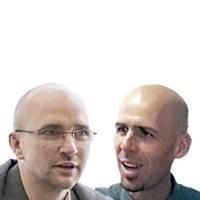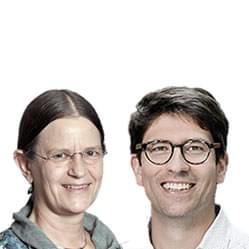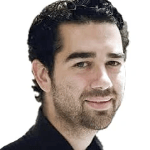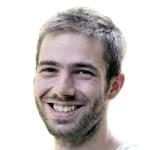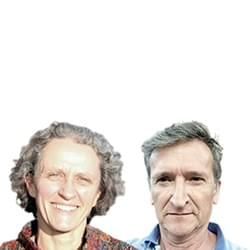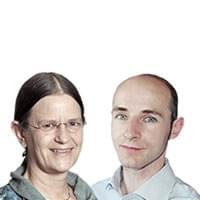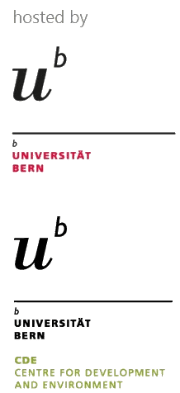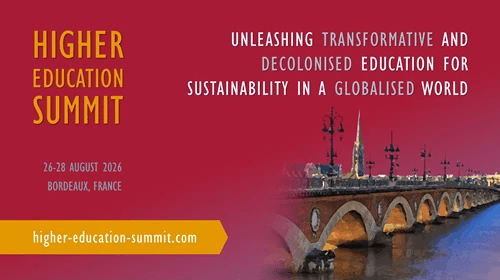
CO-CREATION LABS
Explore, ideate, incubate
Co-creation labs are communities of inquiry and practice that involve participants in collaboratively exploring a specific HESD challenge, developing ideas to address it and testing innovative actions.

"Generating transferable, evidence-based approaches to transformative teaching for HESD"
Aaron Redman, Arizona State University, Matthias Barth, Leuphana University Lüneburg
ESD innovators and researchers have all too often been working in isolation, retarding the scientific progress and impact of the field. This co-creation lab aims to bring together parties interested in aligning their research in such ways that generalizable insights will be generated as well as applying and testing each other’s insights in a rigorous fashion. This lab aims to smash the log-jam of descriptive case studies in ESD with an accumulating body of evidence-based best practice.

"Transformative teaching and learning assessment methods"
Clemens Mader, University of Zurich & Empa – Technology and Society Laboratory, Anne Zimmermann, University of Bern,
Sandra Wilhelm, anders kompetent GmbH, Ruth Förster, dr. ruth förster, training & beratung
Assessment is an essential part of teaching; but how do we make it serve the purposes of ESD in a higher education context? We are curious to find out what assessment practices and theories related to transformative teaching exist out there, and we suggest sketching a research idea together that could be further explored in the context of a COST Action. Join us to contribute with your burning questions and expertise! Former UE4SD partners are most welcome to join, but we are also reaching out to new potential partners.

"Neural and neuro-ethical foundations to individual sustainability competences"
Wim Lambrechts, Open University of the Netherlands
This co-creation lab wants to identify the interlinking of individual sustainability competences with neuroscientific and neuro-ethical insights. The key objective is to explore the role of neural and neuro-ethical processes in dealing with wicked sustainability issues.
The co-creation lab should lead to the preparation of a European Grant application, and the development of an international network focusing on this issue. The intended research project will provide fundamental insights into the development of individual sustainability competences, as well as tangible stepping stones for universities and companies to facilitate sustainability transition processes and break organisational and societal vicious cycles that contribute to wicked sustainability issues.

"How can student's non-formal learning through sustainability engagement be recognized with credits or badges?"
Tim Strasser, rootAbility
While students gain valuable sustainability competences through extra-curricular engagement (Green Offices, oikos, Sneep, etc), these are seldom recognized or assessed as learning outcomes. Through collectively exploring and building on a proposal for offering credits or badges as competency accreditation, we will identify how to practically go about mainstreaming this approach and thereby boost learning for sustainability and career opportunities for graduates.

"Complex issues and learner diversity: Teaching for participatory innovation in sustainable development"
Elisabeth Hofmann & Francois-Xavier Leuret, University Bordeaux Montaigne
The combination of methods that spur innovation and are at the same time inclusive, allowing a co-construction with all stakeholders (also the most vulnerable) requires a particular posture of the professional who is initiating, animating and accompanying such processes, combined with situational competences. How can these experimental, complex and inclusive methods be taught in higher education?
In this co-creation lab, key elements of such a process will be sought, while applying immediatly certain methodological elements and tools. The objective is to come up with concrete pedagogical propositions.

"COST Action"
Anne Zimmermann & Mario Diethart, COPERNICUS Alliance
In this session we aim to develop a COST Action together with members and potential new members of the COPERNICUS Alliance.
ORGANIZERS & CONTACT
The COPERNICUS Alliance Conference 2019 was organized by the COPERNICUS Alliance and CDE/University of Bern.
If you have any questions, please contact:
office@copernicus-alliance.org
